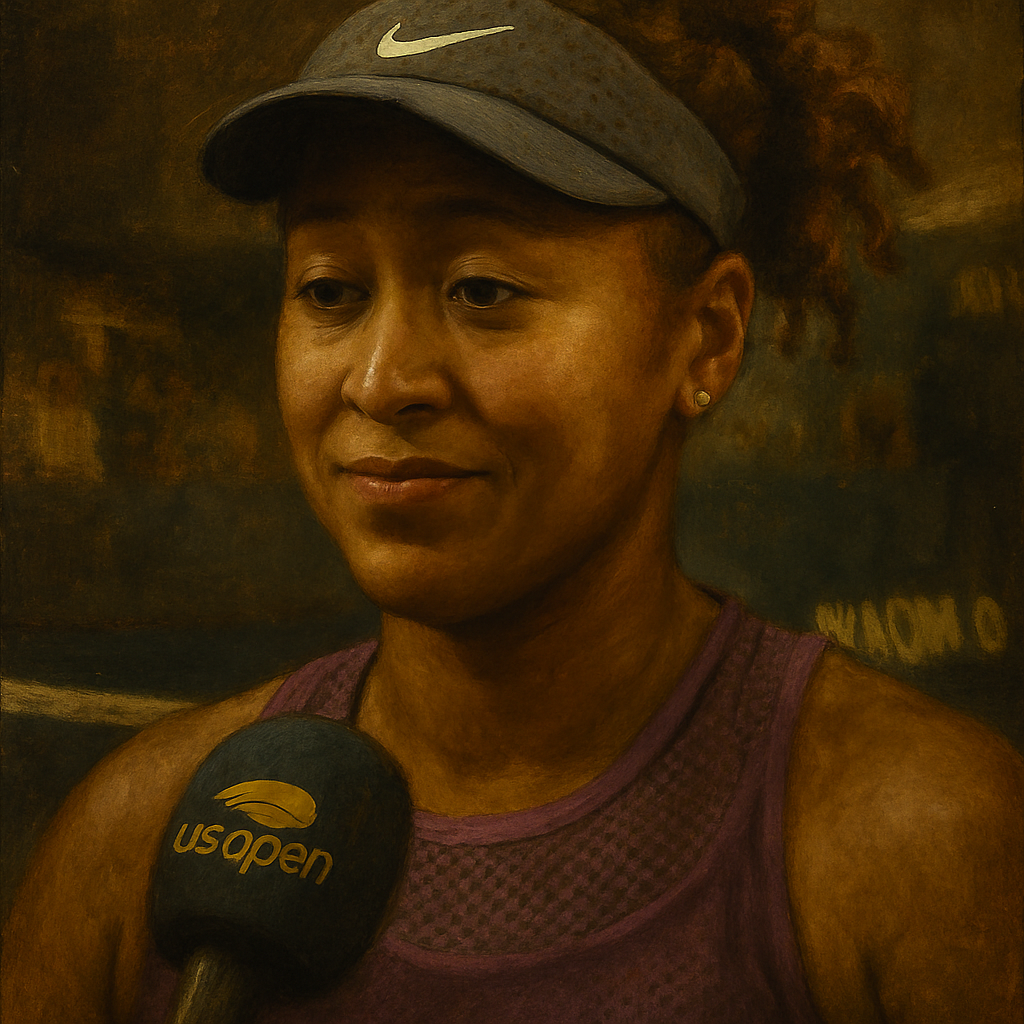NEW YORK — In a moment of raw vulnerability and connection with the Arthur Ashe Stadium crowd, Naomi Osaka secured a hard-fought first-round victory at the 2024 US Open and immediately followed it with a heartfelt plea. After defeating Italy’s Lucia Bronzetti 6-1, 4-6, 6-3, the four-time Grand Slam champion took the microphone and made a personal request to the fans who had just witnessed her triumphant return to Flushing Meadows.
Osaka, who was playing in her first US Open match since 2022 after taking maternity leave, was visibly emotional after the two-hour contest. As the applause died down, she offered a candid apology for her performance before asking for something more. "I just want to say, I'm really sorry about the second set. I promise I'm going to play better in the next match, so I hope you guys will cheer for me," she said, drawing a warm and supportive roar from the audience.
A Triumphant Return After Maternity Leave
The win marked a significant milestone in Osaka’s comeback journey. After stepping away from the tour in late 2022 to welcome her daughter, Shai, the former world No. 1 has been navigating the challenging path back to the top of the game. Her performance against Bronzetti was a testament to both her enduring power and the rust that still needs to be shaken off. She fired 34 winners, including 8 aces, but also racked up 33 unforced errors in a match of fluctuating momentum.
The first set was a dominant display of the tennis that made Osaka a global superstar, but the second set saw her level dip, allowing the 53rd-ranked Bronzetti back into the match. It was this dip that prompted her post-match apology. "It feels kind of crazy to play in front of everyone again," she told the crowd. "I just really appreciate you guys coming out and knowing my name and cheering for me. I feel like these are the moments I'm working hard for."
The Emotional Weight of the Comeback
For Osaka, the return to New York is laden with emotion. It was on these same courts that she captured her first and third major titles, catapulting her to fame. It has also been a place of immense pressure and mental health challenges, which she has spoken about openly. Her plea for support in her next match underscores a new chapter—one where she is actively seeking a partnership with the crowd rather than feeling burdened by its expectations.
In her post-match press conference, Osaka expanded on her feelings. "I think there's a part of me that is very aware of the fact that I haven't played here in two years, and I kind of just want to make the most of every match that I play," she said. "I think apologizing for the second set was more of me just being like, 'I know I can play better, and I want to do better for you guys.'"
This vulnerability has become a hallmark of Osaka’s second act. She has frequently documented the struggles of balancing motherhood with a professional athletic career, from the guilt of leaving her daughter to travel to tournaments to the physical challenge of regaining elite form. Her honesty has resonated deeply with fans, making her appeal for cheers feel less like a request and more like an invitation to join her on this journey.
The Road Ahead at Flushing Meadows
With the first-round hurdle cleared, Osaka’s path does not get any easier. She is set to face a formidable challenge in the second round against the 13th seed, Jelena Ostapenko of Latvia. Ostapenko, the 2017 French Open champion, is known for her explosive, high-risk game and is a former quarterfinalist at the US Open. The matchup promises to be a highlight of the early rounds, pitting two of the tour’s biggest ball-strikers against each other.
Osaka’s request for vocal support could prove crucial in what is expected to be a high-intensity, momentum-driven contest. The New York crowd, known for its passionate and sometimes unpredictable energy, has historically embraced Osaka. Her direct appeal seems designed to solidify that bond and turn Arthur Ashe Stadium into a decisive home-court advantage.
Key factors to watch in the next match include:
- First Serve Percentage: Osaka’s power serve is her biggest weapon.
- Unforced Errors: Cutting down on mistakes will be paramount against Ostapenko.
- Emotional Control: Harnessing the crowd's energy without being overwhelmed by it.
- Return of Serve: Handling Ostapenko’s powerful, flat delivery.
A Champion’s Mindset and New Perspective
Ultimately, Osaka’s immediate apology and plea reveal a champion who still holds herself to an incredibly high standard, but with a newfound perspective. The perfectionist who was often her own harshest critic is still present, but she is now channeling that drive into a collaborative spirit with her supporters. She is not just playing for trophies anymore; she is playing for her daughter, for herself, and for the fans who have stuck with her through every chapter. As the US Open continues, all eyes will be on this beloved star, ready to answer her call and cheer her on every step of the way.

